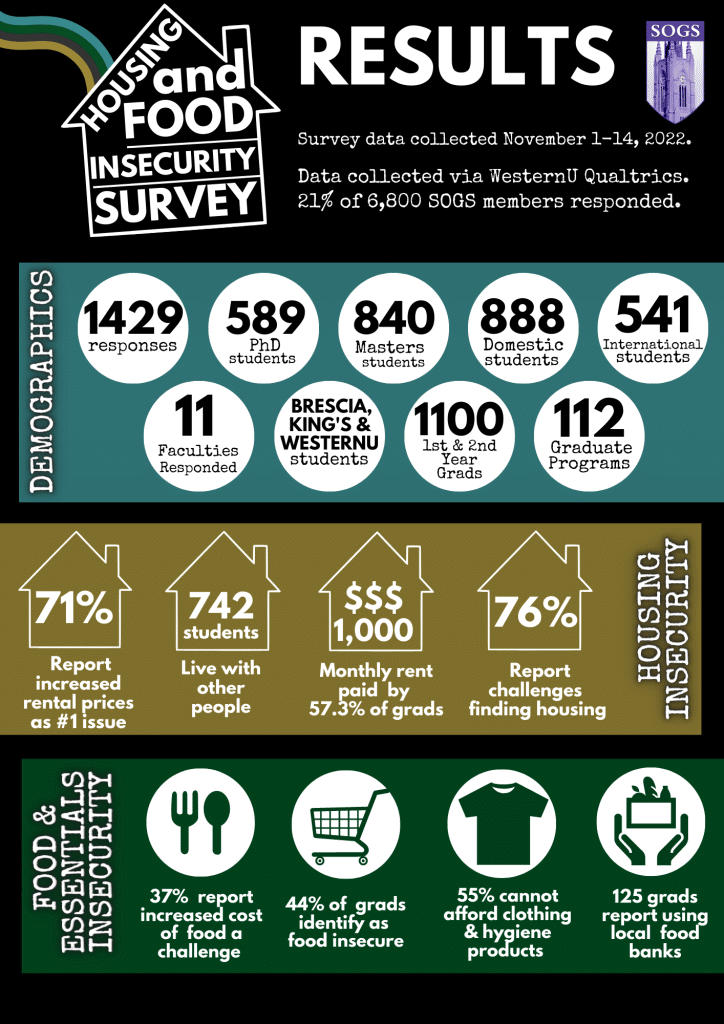Dear SOGS members,
On Monday, April 15th, the SOGS executive send a letter of solidarity regarding the PSAC 610 Graduate Teaching Assistant strike to upper administration at Western University. Please read the letter below.
Dear Dr. Shepard and the Western leadership team,
The Society’s team is closely monitoring the ongoing labour strike by PSAC 610’s Graduate Teaching Assistant (GTA) membership. GTAs represent a significant portion of SOGS members and we stand in solidarity with all of our members.
The SOGS Executive acknowledge Western’s proposal of a 2% annual increase to GTA wages; however, we are concerned that this figure represents a lack of commitment by university administration to ensure teaching assistants thrive and live above poverty level during a time of economic crisis. We fully support PSAC 610’s additional demands for a more financially secure graduate student experience.
SOGS advocates for livable wages for all academic workers. We expect Western to offer significant increases to GTA hourly wages beyond 2% per year in order to show a clear commitment to the wellbeing of teaching assistants and graduate students.
Furthermore, the SOGS executive are deeply concerned with the University’s recent announcement of a 2.5% rent increase in student residences—a rate that falls below the proposed pay increase for Teaching Assistants, and during a time of economic crisis. We urge Western leaders to reconsider what it means to provide GTAs with not only wages that reflect our economic times, but also sufficient additional supports. Lifting GTAs out of financial precarity would enable thousands of graduate students to continue to effectively support Western’s operations and communities while continuing to produce top-tier research that enhances the university’s global standing and reputation.
A collaborative and supportive resolution to this strike will benefit not only GTAs, but also the broader campus community and the City of London, both of which are currently experiencing significant disruptions, including increased traffic and altered public transportation routes.
In solidarity,
SOGS Executive






